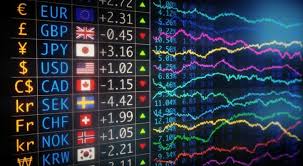
Beginner’s Guide to Forex Trading: Your Path to Financial Freedom
Forex trading, or foreign exchange trading, is the act of buying and selling currencies in pairs, with the aim of making a profit from the fluctuations in their values. As a beginner entering the forex market, you may feel overwhelmed by the sheer volume of information available. However, with the right approach and guidance, you can effectively learn the ropes of forex trading and become a successful trader. In this guide, we will cover the basics of forex trading, key concepts, strategies for beginners, and tips for successful trading. Along the way, we’ll also highlight useful resources such as beginner forex trading Trading Brokers in Vietnam for newcomers looking to engage with reliable trading platforms.
Understanding the Forex Market
The forex market is the largest financial market in the world, with a daily trading volume exceeding $6 trillion. Unlike stock markets, which operate during set hours, the forex market operates 24 hours a day, five days a week. This round-the-clock trading allows traders to react instantaneously to global events that may affect currency values.
Currency pairs are the foundation of forex trading. A currency pair consists of two currencies, for example, EUR/USD (the euro and the US dollar). The first currency (EUR) is referred to as the base currency, while the second (USD) is the quote currency. The price of the currency pair indicates how much of the quote currency is required to purchase one unit of the base currency.
Key Terminology in Forex Trading
As a beginner, you will come across several terms used in forex trading. Below are some of the most important ones to familiarize yourself with:
- Pips: The smallest price move in forex trading, usually expressed as the fourth decimal place (0.0001).
- Leverage: A tool that allows you to control a larger position with a smaller amount of capital, amplifying both potential gains and losses.
- Spread: The difference between the buying price and selling price of a currency pair.
- Margin: The minimum amount of money required in your trading account to open a leveraged position.
- Lot: The standardized quantity of the asset being traded, typically 1 standard lot equals 100,000 units of the base currency.
Choosing a Forex Broker
Selecting a reliable forex broker is crucial for your trading success. A good broker should provide you with an intuitive trading platform, competitive spreads, and ample educational resources. When choosing a broker, consider the following factors:
- Regulation: Ensure that the broker is regulated by a reputable financial authority, which helps protect your funds.
- Trading Platform: The platform should be user-friendly and offer necessary features such as charting tools and technical indicators.
- Account Types: Look for brokers that offer various account types to suit different trading styles and experiences.
- Customer Support: Quality customer support is essential, especially for beginners who may have questions or issues.
Fundamental Analysis vs. Technical Analysis
Two primary methods of market analysis are fundamental analysis and technical analysis. Understanding both can enhance your decision-making process:

Fundamental Analysis
This approach involves analyzing economic indicators, news releases, and geopolitical events that may affect currency values. Key indicators to watch include interest rates, employment data, inflation rates, and GDP growth. Awareness of major economic events can help you anticipate potential market movements.
Technical Analysis
Technical analysis, on the other hand, relies on historical price data and chart patterns to forecast future price movements. Traders use various tools, such as moving averages, support and resistance levels, and candlestick patterns, to identify potential entry and exit points for their trades.
Developing a Trading Strategy
Having a solid trading strategy is crucial for success in forex trading. As a beginner, consider the following strategies:
- Day Trading: Buying and selling currency pairs within the same trading day to capitalize on short-term price movements.
- Swing Trading: Holding positions for several days to take advantage of price swings in the market.
- Scalping: Making quick trades to earn small profits from minute price changes.
Regardless of the strategy you choose, it is important to set clear entry and exit points, and to manage your risk through stop-loss orders and position sizing.
Risk Management in Forex Trading
Managing risk is a crucial aspect of trading. Set a risk-to-reward ratio before entering trades, ensuring you’re comfortable with the potential losses versus gains. Additionally, only risk a small percentage of your trading capital on a single trade to protect your overall investment. Implementing stop-loss orders can also help minimize losses and keep emotions in check when trading.
Continuously Educate Yourself
Forex trading is an ever-changing landscape influenced by numerous factors, including economic events, geopolitical developments, and technological advancements. As a beginner, it’s essential to stay informed about market trends and developments. Utilize the educational resources provided by your broker, engage in online courses, and read books and articles related to trading techniques and market analysis.
Conclusion
In conclusion, entering the forex market as a beginner may seem daunting, but by equipping yourself with the right knowledge and tools, you can carve your path to successful trading. Familiarize yourself with fundamental concepts, develop a trading strategy, and engage in continuous learning. Remember to choose a reliable broker, always manage your risks, and stay informed about market changes. With patience and practice, you can navigate the forex market confidently and work towards achieving your financial goals.

